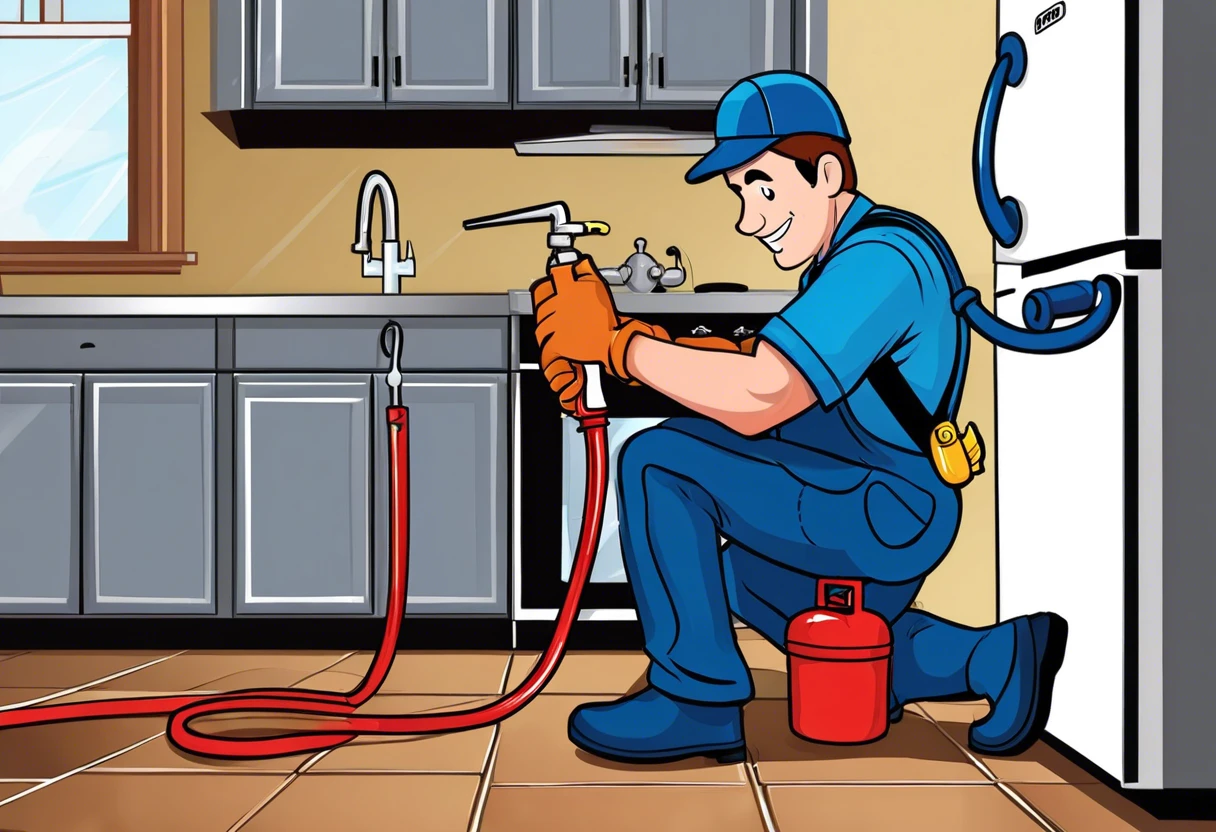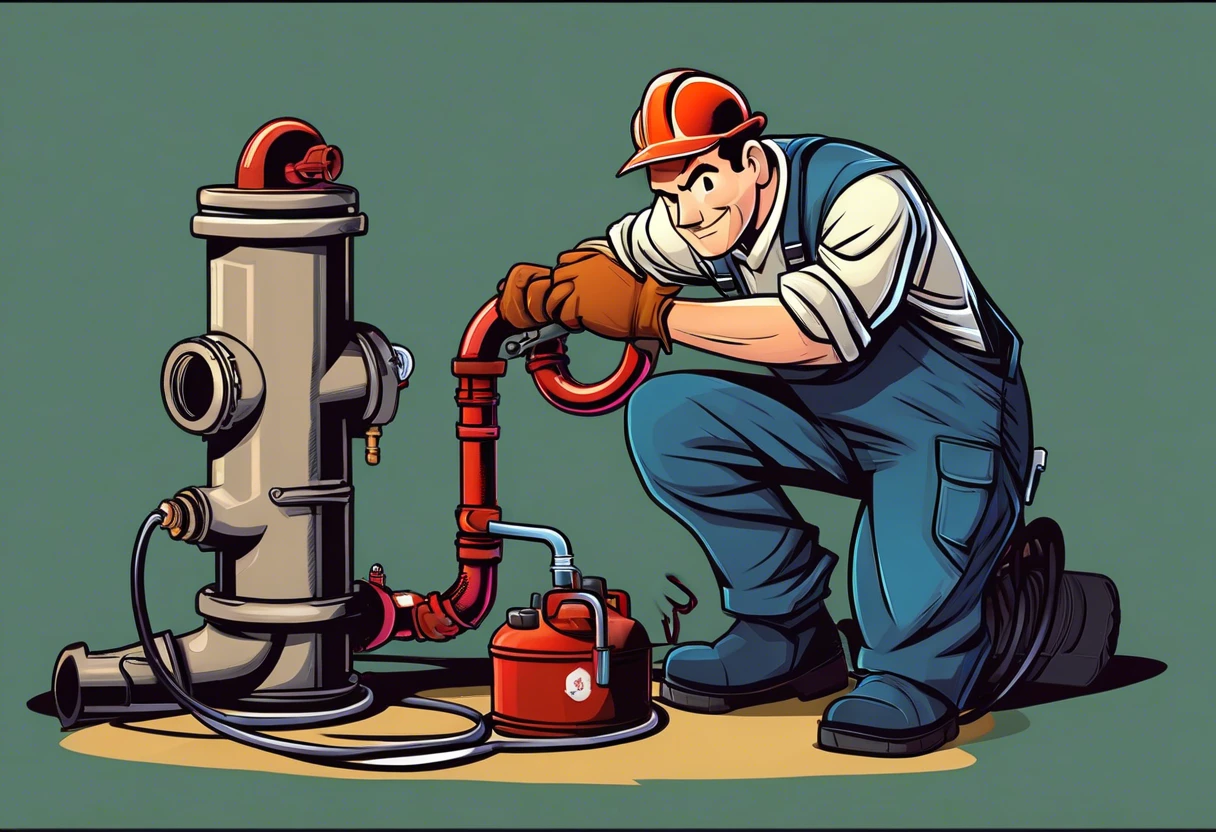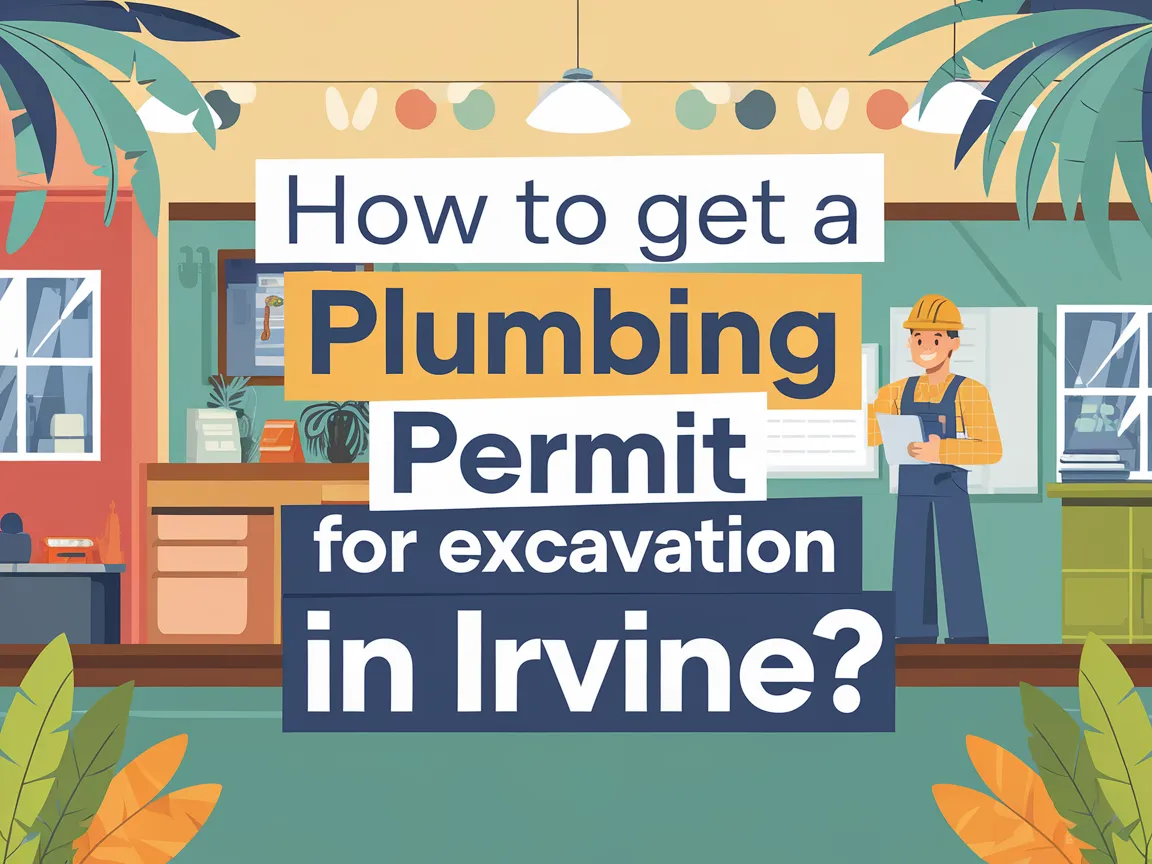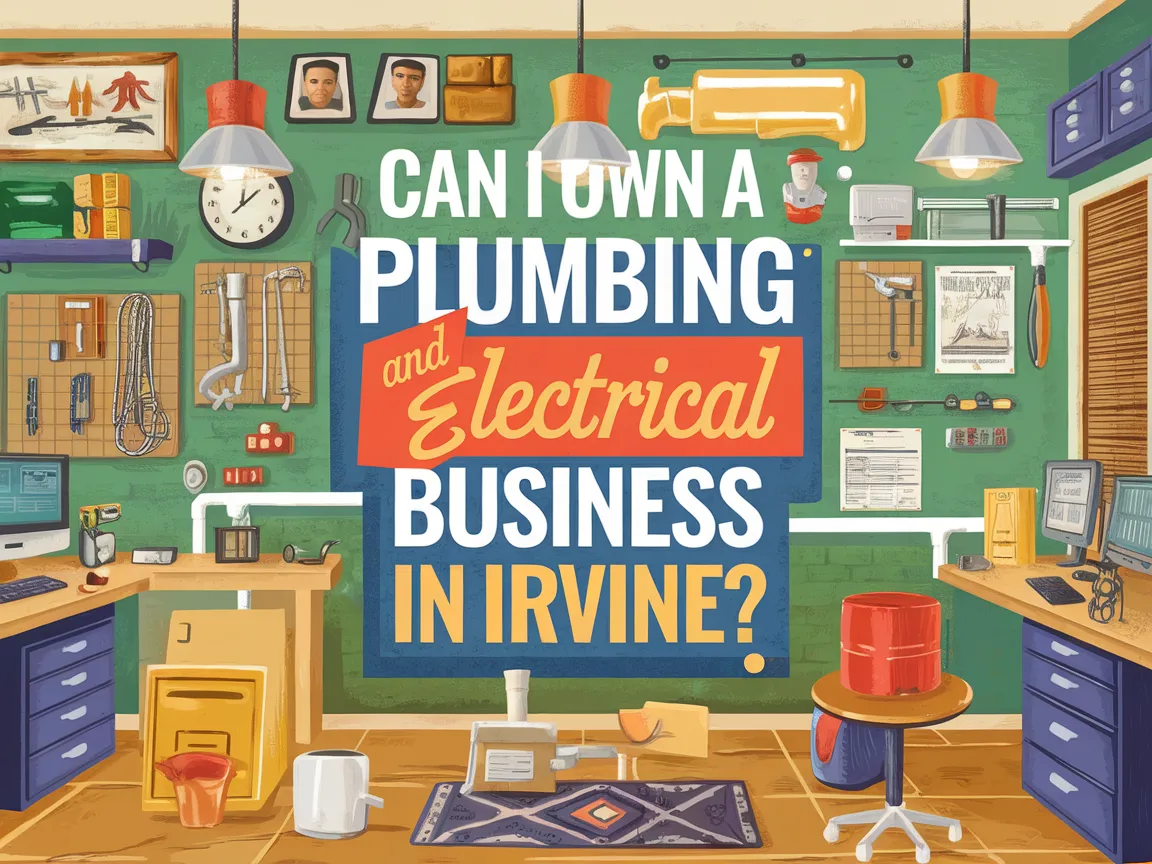Can A Plumber Install A Gas Line?
Last Updated: February 27, 2025
A gas line is a pipe that carries gas to your home for heating and cooking. It’s like a straw that brings fuel for your stove or heater to work.
I can’t tell you how many times I’ve been asked if a plumber can install a gas line. With my hands-on experience in the field, I’m here to guide you through what you need to know.
This article will cover important considerations for installing a gas line, safety tips, installation costs, factors that affect pricing, special considerations, and when to call in an expert.
Table of Contents
- Can a Plumber Install a Gas Line?
- What is a Gas Line?
- Before You Start: Key Considerations for Installing a Gas Line
- How to Safely Install a Gas Line
- How Much Does It Cost to Install a Gas Line?
- What Factors Affect the Cost Of Gas Line Installation?
- What Licensing is Required for Gas Line Installation?
- How to Choose a Qualified Gas Line Installer
- Understanding Gas Line Maintenance and Inspection
- Special Considerations When Installing a Gas Line
- Can a Plumber Handle Different Gas Line Applications?
- Common Issues When Installing Gas Lines
- When to Call a Gas Line Expert: Utilizing Professional Services
- Frequently Asked Questions (FAQs)
- Final Words on Gas Line Installation
- Useful References
Can a Plumber Install a Gas Line?
Yes, a licensed plumber can install a gas line. They have the necessary training and expertise. Make sure your plumber has specific knowledge about local codes and safety regulations. It’s crucial for safe installation and compliance. If you’re curious about the professional journey to becoming a qualified gas line installer, check out the detailed steps for becoming a professional plumber.
What is a Gas Line?
A gas line is a network of pipes that circulates natural gas or propane (A Type Of Fuel) from a central source to your home. It’s incredibly important for appliances like water heaters, furnaces, and stoves right here in Irvine, CA. Standard pipe sizes vary, but they typically range from 1/2 inch (1.27 Cm) to 2 inches (5.08 Cm) in diameter. The pressure in these lines can hit anywhere from 5 to 10 inches of water column (12.4 To 24.9 Mbar).
If you’re considering expanding your professional services in Irvine, you might want to explore owning a multi-trade business.
I’ve found this knowledge super useful in my work, especially when determining gas line needs for different projects. By the way, if you’re wondering whether a plumber can install a gas line, I always recommend hiring a licensed professional with proper training. Plus, these installations often start around $700 and can increase based on your home’s layout and energy demands. But hey, safety and reliability are totally worth it!
Before You Start: Key Considerations for Installing a Gas Line
What do you need to kick off the process of installing a gas line? Here’s what you should consider before getting started.
- Gas Pipe Wrench: You need a gas pipe wrench, like the OXD 174252, for secure connections. It’s crucial to ensure tight, leak-free joints during installation.
- Gas Line Material: Purchase your gas line sections, like flexible stainless steel piping (1/2 Inch [1.27 Cm] Diameter). It’s essential for accommodating shifts in pressure or temperature.
- Pipe Thread Sealant: Get a high-quality pipe thread sealant, like RectorSeal T Plus 2. This seals threaded joints to prevent leaks and is vital for safety.
- Gas Line Shutoff Valve: Look for a proper valve, such as a 3/4 inch (1.905 Cm) ball valve. It’s important for future maintenance and disconnection.
- Lease/Contract Copy: Always have your property rental or purchase agreement ready to ensure compliance with Irvine’s regulations for gas installations.
You should now have a good understanding of key factors for gas line installation. In the next part, we’ll discuss safe installation practices.
Also See: Can a Handyman Do Plumbing? Know Your Options!

How to Safely Install a Gas Line
Now, let’s dive into the steps needed for professionals to handle gas line installations with expertise.
-
Assess Your Plumbing System
Examine the existing plumbing to determine how your gas line will connect with minimal disruption. You’ll need to inspect the main supply valve and other infrastructure to clarify your gas line setup. When assessing potential connection points, plumbers often rely on specialized diagnostic techniques like advanced smoke testing methods to identify potential leaks or structural issues.
If there’s one thing I’ve learned from my time as a plumber, it’s that an accurate inspection can mean the difference between quick fixes and costly repairs. A solid assessment saves time and keeps safety as the top priority! When dealing with complex plumbing systems, knowing the right plumbing maintenance techniques becomes crucial for preventing potential infrastructure problems.
-
Obtain Necessary Permits
Ensure you gather all the permits required by local regulations in Irvine, as this verifies that your installation meets legal and safety standards. Check your municipality’s regulations for gas line installations because requirements can vary greatly. If you’re uncertain about specific HOA guidelines for plumbing modifications, you might want to explore HOA plumbing coverage details.
You wouldn’t believe how many issues can arise from skipping this step—it can lead not only to fines but also push your project timeline back. Staying on top of the paperwork isn’t just important; it’s essential for a smooth process.
-
Choose the Right Materials
Select materials rated specifically for gas line applications, like black iron or liquid-tight flexible metal conduit. Measure precisely for the installation so you can keep everything in line with local codes—this detail often gets overlooked during selection.
A high-quality setup ensures long-term reliability; don’t skimp. Aim for materials with thicker walls to handle issues in high-pressure applications!
-
Install Gas Line With Safety Protocols
Start with creating trenches for underground lines, then connect your fittings snugly to ensure durability at both ends. Always follow local construction codes—the last thing you want is a nasty surprise from a new gas smell! When installing underground utilities, professional plumbers recommend carefully evaluating potential system complications that might impact pipe infrastructure.
After securing everything, test for leaks right away using soapy water; this method is effective! It’s tough to go back if leaks arise later—act fast if adjustments are needed!
Pro Tip: Always double-check that connections to appliances are secure; leaks can be hazardous, and a quick confirmation gives you peace of mind.
You should now have a good understanding of safely installing a gas line. In the next part, we’ll discuss installation costs.
How Much Does It Cost to Install a Gas Line?
When you’re looking to install a gas line, you’ll see costs ranging from about $300 to $1,200 for basic installations here in Irvine, CA. Keep in mind, unexpected expenses might pop up due to local permits, trenching, or requirements from gas companies. Personally, I recommend budgeting around $1,000 to cover any surprises, and you can usually expect the job to take about a day if you hire a pro. If you’re curious about the longevity of your plumbing materials, PVC pipe durability matters for long-term home maintenance.
Cost Breakdown for Gas Line Installation
| Cost Category | Low Estimate ($) | High Estimate ($) |
|---|---|---|
| Materials (Pipes, Fittings) | 150 | 600 |
| Labor (Professional Price) | 200 | 500 |
| Permits | 0 | 100 |
| Contingency & Misc. | 50 | 200 |
| Total Estimate | 400 | 1,400 |
We’ve wrapped up the costs associated with gas line installation. Let us turn our attention to the factors influencing these costs.
What Factors Affect the Cost Of Gas Line Installation?
So, what factors influence whether a plumber can install a gas line?
-
Local regulations – Permits and regulations can vary significantly by city—like Irvine compared to nearby areas—which can influence the installation process. If you’re planning excavation work, you’ll want to know the specific requirements for obtaining plumbing permits in Irvine.
-
Distance to the main gas supply – The farther the plumber has to run the line, the higher the labor and material costs will be.
-
Type of gas – The installation for natural gas lines may differ from propane; knowing the gas type affects the technique used.
-
Material used – Copper, steel, or flexible plastic—each has its own strengths and weaknesses that influence overall installation parameters.
You should now have a good understanding of the factors influencing gas line installation costs. In the next part, we’ll discuss licensing requirements for gas line installation.

What Licensing is Required for Gas Line Installation?
When it comes to installing a gas line, proper licensing is crucial. Let’s break down what you need to know.
- State Licensing: In California, plumbers must carry a valid C-36 license to work with gas lines.
- Local Permits: Always check with the city of Irvine, CA, as you may need additional permits specific to your location.
- Insurance Requirements: Make sure your plumber has insurance to protect against damages during installation.
How to Choose a Qualified Gas Line Installer
Choosing the right plumber for gas line installation can make all the difference. Here are some tips to find someone you can trust.
- Check Credentials: Look for a licensed plumber with experience in gas line installations. Verify their C-36 license with the California Contractors State License Board.
- Read Reviews: Local homeowners in Irvine often share their experiences online—use platforms like Yelp or Google to find top-rated services.
- Ask About Experience: Don’t hesitate to ask how many gas line installations they’ve handled. A seasoned expert is always a safer bet!
Understanding Gas Line Maintenance and Inspection
Gas line maintenance is something homeowners often overlook. Here’s why keeping up with inspections is essential.
- Regular Inspections: Schedule inspections every few years to ensure gas lines remain safe and compliant with regulations.
- Signs of Wear: Be vigilant for rust, leaks, or corrosion. Immediately address any signs of wear to prevent dangerous situations.
- Professional Check-Ups: Think of hiring a pro for checks every few years, typically costing around $50 to $100.
Special Considerations When Installing a Gas Line
In this section, I’ll share some key factors you should keep in mind when dealing with gas line installation.
- Pipe Material: Use black iron or flexible gas piping (CSST). Make sure the pipes meet ANSI (American National Standards Institute) guidelines for safety.
- Pressure Ratings: Choose pipes rated for at least 7″ water column pressure for residential applications. Any leaks can be dangerous, so this is super important!
- Connections & Fittings: Use proper gas fittings, and ensure all joints are tight. Inability to secure connections can lead to leaking issues.
- Distance from Structures: Position pipes at least 5 feet (1.5 Meters) away from buildings for fire safety. This spacing guideline is crucial for residential installations.
- Permits & Inspections: Check local Irvine building codes to find out which permits (Authorization Needed) you need. You might require an inspection after completion to ensure everything’s up to code.
Can a Plumber Handle Different Gas Line Applications?
Yes, a plumber can install gas lines for various applications like furnaces, stoves, and grills. Each of these has unique requirements.
Specific Applications for Gas Line Installations
| Application Type | Common Pipe Size | Installation Notes |
|---|---|---|
| Kitchen Stove | 1/2 inch (1.27 cm) | Ensure flexible connections are used for ease of movement during maintenance. |
| Water Heater | 3/4 inch (1.905 cm) | Position near exhaust vent and ensure sufficient clearance for service access. |
| Outdoor Grill | 1/2 inch (1.27 cm) | Install a shutoff valve for safety; keep at least 10 feet from any structure. |
| Furnace | 3/4 inch (1.905 cm) or larger | Consult with a pro for specific BTU requirements; pressure testing is crucial here. |
Common Issues When Installing Gas Lines
Even pros encounter hurdles! Here are some common challenges plumbers face when installing gas lines.
- Access to Work Area: Limited space around appliances can complicate installation.
- Regulatory Compliance: Local building codes must be followed; variations exist across towns in the OC.
- Material Compatibility: Mixing different materials can lead to leaks; using the wrong fittings is a big no-no.
- Pipe Sizing: Incorrect sizing can cause issues with appliances and restrict gas flow.
When to Call a Gas Line Expert: Utilizing Professional Services
If you’re ever wondering, “Can a plumber install a gas line?”, that likely means something’s amiss. It’s time to call in a gas line expert when you smell gas, hear hissing sounds, or notice outdated connections. Look for someone with a license, tons of reviews, and plenty of on-the-job experience. Trust me, certifications matter, so don’t hesitate to ask for them! Some older homes might have problematic plumbing pipe materials that require professional assessment.
Based on my own projects around Irvine, CA, never ignore weird smells coming from your gas fixtures. I’ve seen a few homeowners brush them off, thinking it’s nothing, only to end up dressed in oxygen masks after town services were alerted. That’s a definite red flag! Always check Google or Yelp ratings for some solid leads. The folks in the OC aren’t shy about sharing their ‘good’ and ‘shady’ tales! When dealing with potential gas hazards, it’s crucial to understand landlord plumbing responsibilities.
Frequently Asked Questions (FAQs)
Can I Install a Gas Line Myself?
Can I install a gas line myself? Nope, you shouldn’t go there. Gas line installation requires specialized knowledge to avoid severe safety hazards.
How Long Does It Take to Install a Gas Line?
How long does it take to install a gas line? Typically, it takes about 3 to 6 hours, depending on how complex the job is.
What Should I Do if I Smell Gas?
If you smell gas, first things first: evacuate the area immediately. Then, call your local gas company or emergency services right away. Safety first, always!
Are There Different Types Of Gas Lines?
Absolutely! There are different kinds of gas lines: flexible, rigid, and CSST. Each type serves unique needs and situations.
Is a Gas Line Installation Considered a Plumbing Job?
You bet! Gas line installation is definitely part of the plumbing realm and must be handled by a licensed professional. Don’t DIY this one!
How Much Does It Cost to Install a Gas Line?
The average cost for installing a gas line ranges from $500 to $1,500. This depends on things like distance, materials, and how accessible the area is, which is pretty important here in Irvine. When you’re ready to tackle this project, you might want to get professional plumbing assistance to ensure a safe and accurate installation.
Who Do I Call to Install a Gas Line?
For a gas line installation, reach out to a licensed plumber or gas contractor who specializes in this kind of work. They’ll know the ins and outs of local regulations.
Does Plumbing Deal With Gas?
Yes! Plumbing can indeed deal with gas lines. Understanding both utility types is key for safety and compliance in your home.
Also See: What Are Plumbing Risers? Their Role in Your Home
Final Words on Gas Line Installation
We are almost done. We covered what a gas line is, key considerations to keep in mind before installation, how to safely install a gas line, costs associated with this installation, factors that affect those costs, special considerations crucial for gas lines, and when to call a gas line expert.
To sum up, a plumber can indeed install a gas line given their expertise and training. I’ve been serving Irvine and Orange County for over a decade, so if you need reliable plumbing help, I’ve got you covered.
For further insights, feel free to visit Irvine Plumbers for more comprehensive information.
Useful References
- California Plumbing Code (CPC) – https://www.dgs.ca.gov/BSC/Codes
- Who Can Help With Running or Installing a Gas Line? | Angi
- Do Plumbers Work on Gas Lines? | Christian


